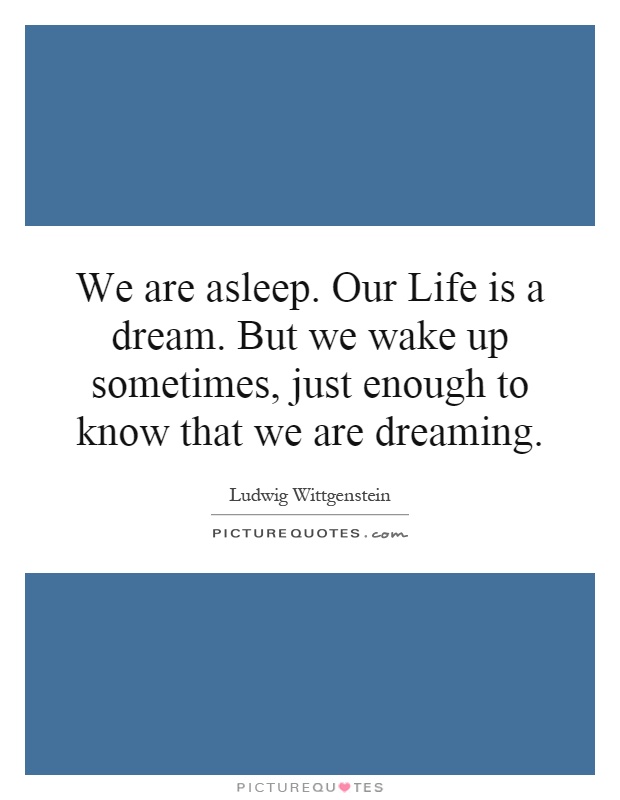We are asleep. Our Life is a dream. But we wake up sometimes, just enough to know that we are dreaming

Wake Up QuotesLife Is A QuotesJust Enough QuotesLife Is A Dream QuotesLife Is QuotesLudwig Wittgenstein Quotes
We are asleep. Our Life is a dream. But we wake up sometimes, just enough to know that we are dreaming
Ludwig Wittgenstein, a renowned philosopher known for his work in logic, language, and the nature of reality, often delved into the concept of perception and consciousness. The quote “We are asleep. Our Life is a dream. But we wake up sometimes, just enough to know that we are dreaming” can be interpreted through the lens of Wittgenstein’s philosophical ideas.Wittgenstein believed that language was a crucial tool for understanding the world around us, but also recognized its limitations in accurately representing reality. In his famous work “Tractatus Logico-Philosophicus,” he argued that language could only describe the surface of reality, and that deeper truths could not be captured through words alone. This idea aligns with the notion that we are “asleep” in our everyday lives, going through the motions without truly understanding the nature of our existence.
The concept of life being a dream can be seen as a metaphor for the subjective nature of reality. Wittgenstein posited that each individual’s perception of the world is unique to them, shaped by their experiences, beliefs, and cultural background. In this sense, our lives can be seen as a dream that we are collectively experiencing, with each person interpreting the world in their own way.
However, there are moments when we “wake up” from this dream, gaining a glimpse of the true nature of reality. Wittgenstein believed that these moments of clarity were rare but essential for gaining a deeper understanding of the world. It is in these moments of awakening that we realize the limitations of language and perception, and begin to question the nature of our existence.
Overall, the quote “We are asleep. Our Life is a dream. But we wake up sometimes, just enough to know that we are dreaming” can be seen as a reflection of Wittgenstein’s philosophical ideas on perception, consciousness, and the nature of reality. It serves as a reminder to question our assumptions, challenge our beliefs, and strive for a deeper understanding of the world around us.












 Friendship Quotes
Friendship Quotes Love Quotes
Love Quotes Life Quotes
Life Quotes Funny Quotes
Funny Quotes Motivational Quotes
Motivational Quotes Inspirational Quotes
Inspirational Quotes